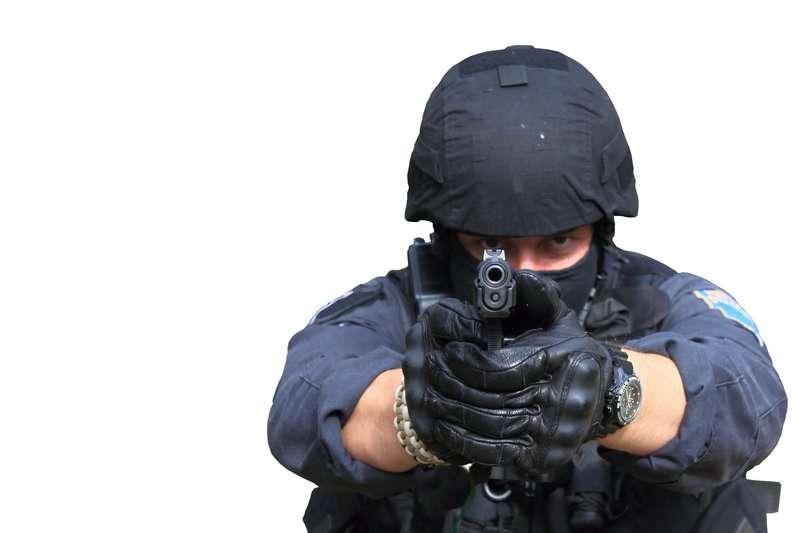Meet the Man Helping Police Officers Get Away with Shootings
A psychology professor testifies that there's pretty much always a good reason.


Matt Apuzzo at the New York Times has produced a lengthy profile of an expert witness who anybody interested in reforming police behavior absolutely must pay attention to. Meet William J. Lewinski. He travels around the country offering his testimony at trials justifying police shootings, even in cases where the victim was unarmed:
His conclusions are consistent: The officer acted appropriately, even when shooting an unarmed person. Even when shooting someone in the back. Even when witness testimony, forensic evidence or video footage contradicts the officer's story.
He has appeared as an expert witness in criminal trials, civil cases and disciplinary hearings, and before grand juries, where such testimony is given in secret and goes unchallenged. In addition, his company, the Force Science Institute, has trained tens of thousands of police officers on how to think differently about police shootings that might appear excessive.
A string of deadly police encounters in Ferguson, Mo.; North Charleston, S.C.; and most recently in Cincinnati, have prompted a national reconsideration of how officers use force and provoked calls for them to slow down and defuse conflicts. But the debate has also left many police officers feeling unfairly maligned and suspicious of new policies that they say could put them at risk. Dr. Lewinski says his research clearly shows that officers often cannot wait to act.
"We're telling officers, 'Look for cover and then read the threat,' " he told a class of Los Angeles County deputy sheriffs recently. "Sorry, too damn late."
What's truly unnerving about the story is Lewinski's role in teaching police to be absolutely terrified of every other human being they encounter. He and his students perform video experiments showing how quickly a person concealing a gun can turn and shoot at an officer and how quickly a person can pull a gun, then turn and run away (to justify cases where suspects end up shot in the back). Whether these situations are likely isn't the point—just that they're technically possible.
So Lewinski plays an active role in convincing officers they are always in danger when dealing with members of the public. Then when one of these shootings happen, he turns around and helps justify these shootings to juries because the officer was afraid he was in danger.
Lewinski has infuriated researchers by using the concept of "inattentional blindness"—where focus on one task blocks out everything else—to justify police mistakes. Such an argument, one prosecutor noted, could be used to justify any police shooting, no matter the circumstances. But just imagine if a non-police citizen tried using the argument in a case. Would it end up like this one?
Robert Murtha, an officer in Hartford, Conn., shot three times at the driver of a car. He said the vehicle had sped directly at him, knocking him to the ground as he fired. Video from a nearby police cruiser told another story. The officer had not been struck. He had fired through the driver's-side window as the car passed him.
Officer Murtha's story was so obviously incorrect that he was arrested on charges of assault and fabricating evidence. If officers can get away with shooting people and lying about it, the prosecutor declared, "the system is doomed." …
Dr. Lewinski testified at trial. The jury deliberated less than one full day. The officer was acquitted of all charges.
The increased attention on police shootings has resulted in some additional documentation of the actual numbers. As we've explained before, there is no national government database tracking the killing of citizens by police. The FBI does keep track of numbers, but participation is spotty and the figures are extremely incomplete. The Guardian is now operating an independent database counting police shootings.
We are up significantly this year compared to last year. July was a particularly bad month, The Guardian notes. The Guardian lists 680 people killed by police this year. According to volunteer database Killed by Police, the number last year at this time was about 645, so there's an increase over last year if this rate keeps up (important caveat: These are simply flat numbers without any consideration of the circumstances of the killing, whether the other person was armed, or in the commission of a crime, et cetera).


Show Comments (115)